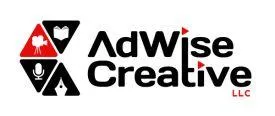Marketing for Service Businesses That Want Consistent Clients — Without Juggling Multiple Agencies
A marketing system grounded in SEO and turns your expertise into content, leads, and long-term growth — DIY or done-for-you.

Most Service Businesses Don’t Have a Marketing Problem — They Have a Fragmentation Problem
You hire an SEO person.
Then a video person.
Then someone for funnels.
Then email.
Then automation.
None of it talks to each other.
So you:
Wait months for "results"
Become the project manager
Pay multiple vendors
Still don't know what's actually working
The problem isn’t effort.
It’s disconnected marketing.
Wondering what Google thinks of YOUR website?
Find out in 60 seconds - free. No signup, no pitch
A Connected Marketing System - Not a Stack of Services
AdWise Creative builds simple, connected marketing systems for service businesses — so every piece works together to bring in clients.
Instead of chasing tactics, you install a system designed to compound over time.
How The System Works
Search Visibility – People can find you
Authority Content – They trust you
Lead Capture – You don’t lose them
Follow-Up & Automation – You don’t chase
Consistent Clients – The outcome
No ads required.
No constant posting pressure.
No duct-taped tools.
AdWise Creative. 2026. All Rights Reserved.
